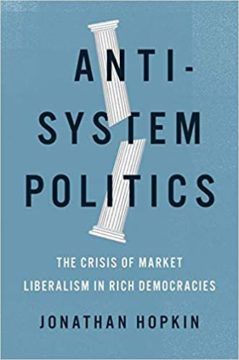 Robert Kuttner in the New York Review of Books:
Robert Kuttner in the New York Review of Books:
Ever since the early twentieth century, advocates of taming capitalism in the public interest have assumed that energized citizens and activist government could counter the power of concentrated wealth. The Progressive Era, in which legislation was enacted to constrain the robber barons of the time, was cut short by World War I. But after World War II a combination of government regulation, direct public investment, progressive taxation, social insurance, and a vigorous labor movement led to broad prosperity. America’s citizenry reciprocated with a trust in democratic government.
In recent decades, that virtuous circle has turned vicious. Rapacious capitalism has resurged, and with it inequality and insecurity. Government has not only been unable to counter these trends; partisan blockage has undermined even basic tasks of governing such as assuring the integrity of elections. Not surprisingly, government has lost public confidence.
Roadblocks to activist government in the US were designed by the nation’s founders, who equated protection of the rights of the people with limited government. They built into their Constitution all manner of checks and balances as obstacles to legislation, and the Supreme Court, beginning in 1803 with Marbury v. Madison, asserted the prerogative to declare laws unconstitutional.
In addition, the filibuster, which requires a supermajority to end debate and pass legislation, has been a Senate rule since 1917.
Thus it requires unusual circumstances—the kind of national emergencies and large legislative majorities associated with Franklin Roosevelt or Lyndon Johnson—for the US government to take broad progressive action.
Government activism in the US has been further hobbled by racism. Even FDR, our most progressive president, excluded Black citizens from most of his programs in order to win approval of the racist southern Democrats who controlled important congressional committees. Public housing was segregated. Occupations in which most African-Americans worked were deliberately denied the benefits of Social Security and of the Wagner Act, which guaranteed workers the right to join labor unions and to bargain collectively. FDR’s New Deal was largely for whites.
More here.
